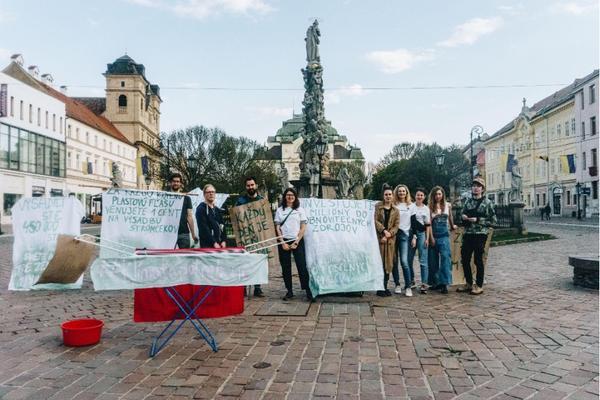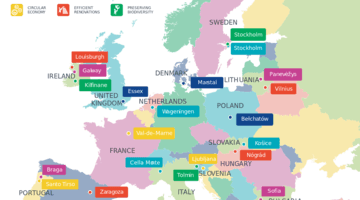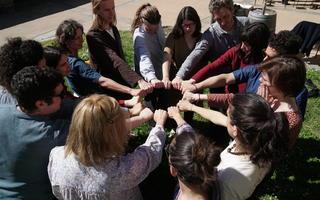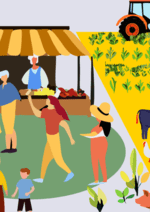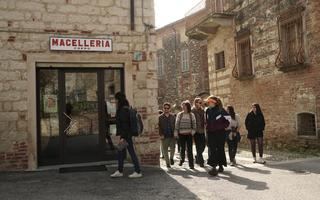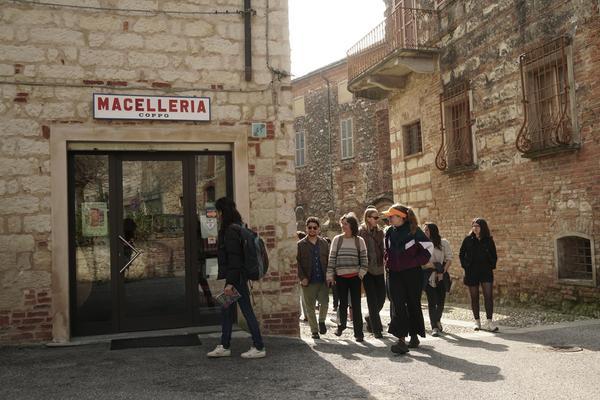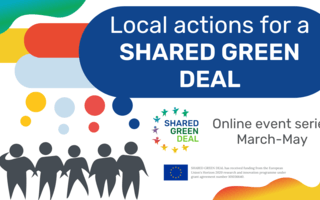Sustainable Food Systems in Košice
The local experiment is focused on the topic of sustainable food within the Košice region. During research and assembly meetings with local stakeholders, they will address the absence of local strategies that clearly define a path to a sustainable and low-carbon region. This gap leads to missed networking opportunities between different stakeholders, producers, and ongoing initiatives thus hindering the region’s potential to create a sustainable food chain. They will pay particular attention to the impact that current Slovakian legal and policy frameworks have in shaping food chain reforms.
Local context
Košice is the second largest city in Slovakia. The Košice region covers an area of 6,753 km² and has over 782,000 inhabitants. Historically, Slovakia’s economy has been dominated by heavy industry (a remnant of the Soviet era), and by the agricultural sector. In fact, agricultural land occupies almost half of the country’s area, characterized by large farm holdings, five times the size of EU average. In 2019, according to Eurostat, Slovakia’s 2019, agriculture accounted for 6.3% of all greenhouse gas emissions. This is partially related to an excessive level of industrial farming and mass production. Against this backdrop, there is a sizable lack of strategies focusing on the agricultural sector and food production in relation to climate change and on alternative supply chains connecting local producers and consumers. In addition, there is no systematic support (whether from the state, cities and regions, or consumers) for smaller, more sustainable farms applying regenerative or nature-friendly agriculture.
Specific needs and challenges
The experiment needs to identify key stakeholders at the local level - farmers, school canteens, catering establishments, restaurants supporting local products, and alternative initiatives dealing with the sustainability of catering in the context of the climate crisis. The main challenge is to connect those stakeholders and find opportunities for the creation of a sustainable food chain, considering what constraints and opportunities are presented by local and national policies and strategies. Local strategy policy documents rarely address this issue. A few exceptions include the Adaptation Strategy of the Košice Self-Governing Region from 2020, which identifies the need for diversification of landscape structures leading to an increase in the adaptive capacity of the agricultural landscape; and the Košice Economic and Social Development Plan (2015) that, in the context of urban development, identifies in a little more detail the need to implement programs for community gardens or green balconies.
Detailed description of the experiment
The main objective is to develop a detailed stakeholder mapping exercise to help outline what a sustainable and comprehensive local food chain could look like in Košice (Eastern Slovakia) and its surrounding region. There is a potential to create alternative supply chains, where locally produced food is fed into local catering facilities such as school canteens, social canteens, etc. to provide quality, sustainable, and affordable food. The Košice Region’s almost 50% of agricultural land offers a variability of local products. Unfortunately, the progress toward sustainable farming is quite slow. There are several reasons for this, including the ineffective legislative process towards sustainable farming policies and innovations that create frustrations, the bureaucratic complexity of using EU financial support, the historical context (collectivisation during the Soviet era), and farmers’ wariness of new practices. There is also a potential within the civic sector to create innovations and new initiatives. The experiment can help catalyze a wider stakeholder mobilization, knowledge-transfer about the local context, and share good practices that already exist in Slovakia (and within central Europe). During the project, they will actively work with the city and regional governments to advocate the needs of the stakeholders within the local policies and strategies but also with administrators of the local primary and secondary schools that can be potentially involved in the project. In short, the aim is to challenge existing systemic barriers and discuss better actor-system arrangements to boost Košice’s potential sustainable food system. On the one hand, project activities will help identify key stakeholders at the local level like farmers, and catering establishments supporting local products. On the other hand, they will be able to better outline alternative initiatives to deal with the mitigation of key catering-sustainability systemic issues in the face of climate change challenges.
Involvement of the target group
During the experiment, the goal is to bring together a diverse group of people with different points of view on sustainable food and sustainable food chain development. The group will be created during the research phase. The strategy is first to organize individual meetings with the representatives of different initiatives, farmers, producers, policymakers, innovators, activists, etc. Together with those representatives, they will identify the key topics, issues, and opportunities that will help them effectively prepare for the co-creative assembly meetings. Individual meetings are crucial for the creation of long-term relations with the key stakeholders and a feeling of project-ownership that could be used in their future practice or, in the case of policymakers, in shaping future policies.
Partners
The partners of the experiment will ideally include: The Technical University of Košice, the regional academic leader, with accumulated expertise in circular economy with an emphasis on food waste and production. The Spolka organization, a collective of architects and designers that focus on community-engaged sustainable urban development; The Carpathian Development Institute, author of Košice’s adaptation strategy for climate change A wide range of local small farmers, community gardens, and grassroots initiatives focusing on alternative forms of eating or food. A set of end-consumer stakeholders: e.g. school canteen, elderly care centers The City of Košice Authority, the Košice Region Authority, and Agency for the Support of Regional Development.
Local partner
Klíma ťa potrebuje
Country
Slovakia
Number of inhabitants
228,000 (City of Košice); 782,000 (Košice Region)
City
Košice and region
Website/social media
Contact person:
Zuzana Kupcová, Project Coordinatorkosice [at] klimatapotrebuje [dot] skkupcova [dot] zu [at] gmal [dot] com
MAY-AUG 2023
Research of the local context, policies, strategies, good practices
MAY/SEP 2023
Promotion of the topic through Klíma ťa potrebuje channels
JUN 2023
Establishment of a transition committee
JUN-JUL 2023
Contacting local stakeholders, individual meetings and recruiting assembly participants
SEP-DEC 2023
10 interviews with stakeholders
OCT 2023
Assembly meeting Nr. 1
NOV 2023
Assembly meeting Nr. 2
DEC 2023
Assembly meeting Nr. 3
JAN 2024
Assembly Nr. 4 - Joined reflexive learning & outreach assembly
FEB 2024
Processing the outputs of the assembly meetings and sharing them with stakeholders and general public
MAR-MAY 2024
Evaluation, reporting, next steps
Related Green Deal Priorities
TIMELINE
Case Study Guides
|
Find out more


CONTACT
For further details please contact co-leads Professor Chris Foulds (chris.foulds@aru.ac.uk) and Professor Rosie Robison (rosie.robison@aru.ac.uk).

This project has received funding from the European Union’s Horizon 2020 research and innovation program under grant agreement No 101036640. The sole responsibility for the content of this website lies with the SHARED GREEN DEAL HAS project and does not necessarily reflect the opinion of the European Union.
